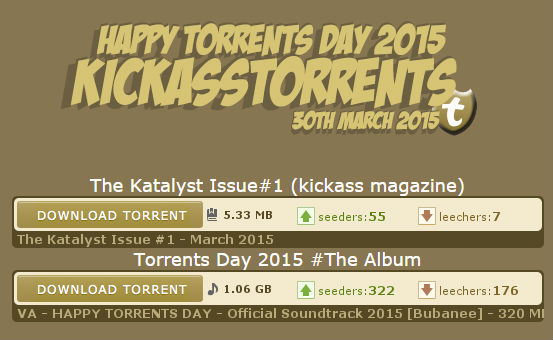 People started sharing files with each other – text, games, music – as soon as there was a storage medium you could copy.
People started sharing files with each other – text, games, music – as soon as there was a storage medium you could copy.
Originally, this meant the compact cassette which was used for music and programs for the first home computers. Cassette decks at the time had a convenient copy mechanism where you’d insert an original in one slot, a blank tape in another slot, and press a prominent “copy” button to get an analog replica – not perfect, if it was music, but if it was a digital computer file, it would be readable and usable. The one-push copy was even a sales point.
Everybody had their circle of friends who contributed to the common collection between them, and we’d always be carrying some copy of something else we anticipated was in demand. People would copy something from you more or less every day. You would copy things from several people pretty much every day.
Copyparties were huge fests where hundreds of teens (or pre-teens) rented a school building for a weekend, brought their entire catalog of tapes and diskettes, an equivalent amount of blank media, and just copied everything they could from each other instead of sleeping. These copyparties frequently had pallets of Jolt Cola for sale.
In this setup, completely before the Internet, if something in high demand was published, it would take three days on average for that piece of media to get to everybody who wanted it.
In other words, in a complete shutdown of the Internet where people go back to sharing by copying media by hand, the very best the copyright industry can hope for is three days until saturation instead of today’s one day. It’s almost funny how the copyright industry still delays releases by weeks if not months between neighboring countries and think they can determine who gets to see what when. That was never the case, and won’t ever be the case.
File sharing is here to stay and the reason it’s still traceable is mostly because the risk of getting caught by stale, obsolete, and outdated laws is considerably lower than the risk of getting struck by lightning. There’s no real push to improve it, like there was right after Napster shut down. But let’s imagine for a moment if there was a real push to move sharing back under the radar.
Today, the storage of an ordinary mobile phone can effectively store all music except the most narrow. And with fourth-generation Bluetooth, it can wirelessly – and tracelessly! – share all of it to all mobile phones in a 50-meter range. Subway cars, cafés, even cars at red light stops become torrent swarms without somebody acting – or even noticing. The notion of being able to stop, control, or contain this files under “what’s the weather like on your planet?”.
Not only that, but the best-generation scenario that the copyright industry can ever hope for is the equivalent of a shutdown of the entire internet. That would mean a regression from today’s 24-hour saturation to a pre-internet 72-hour saturation. Think about that. The best conceivable scenario for the copyright industry, if they really manage to destroy the entire Internet, is that it would take three days instead of one day for something to get shared to everybody who wants it.
Moore’s Law further suggests that in a decade or so, an ordinary mobile phone will also have capacity to store most TV and movies ever made.
So once you accept that file-sharing is here to stay for good, and that any attempt to contain it is a Canutian attempt to order the tide back, you can let go of that and instead focus on all the positive aspects of that development:
The income is there for artists. In fact, more than twice the income is there for artists with file-sharing. There’s no need to fret and worry about that development, no need to hunt license fees for every copy manufactured without a license. Rather, as soon as you realize that chasing license fees for every copy is actually a cashflow net negative, you’ll start to chill and realize the revenue is still there. (Well, not for the parasitic middlemen: not for the actual copyright industry. But artists have always hated those with a passion.) As a significant bonus, you won’t be turning your customers into enemies.
But more importantly, it means that every human being has 24/7 access to humanity’s collective knowledge and culture, and that every human being is able to add to that pool. That’s the equivalent of when the first public libraries opened in 1850, but on an enormously larger scale. Even though the copyright industry is trying again and again to burn this Library of Alexandria, it’s worth more than pause to consider what a huge leap ahead for humanity this really is.
And while the copyright industry may order the tide held back, waging war against future generations is rarely a winning proposition in the long run.
About The Author
Rick Falkvinge is a regular columnist on TorrentFreak, sharing his thoughts every other week. He is the founder of the Swedish and first Pirate Party, a whisky aficionado, and a low-altitude motorcycle pilot. His blog at falkvinge.net focuses on information policy.
Source: TorrentFreak, for the latest info on copyright, file-sharing, torrent sites and anonymous VPN services.

 With millions of unique visitors per day KickassTorrents (KAT) has become the most-used torrent site on the Internet, beating even The Pirate Bay.
With millions of unique visitors per day KickassTorrents (KAT) has become the most-used torrent site on the Internet, beating even The Pirate Bay. 
 One of the major strategies of the world’s leading entertainment companies is to have sites like The Pirate Bay blocked at the ISP level. The idea is that when subscribers can’t access ‘pirates’ sites they will flock to legal alternatives.
One of the major strategies of the world’s leading entertainment companies is to have sites like The Pirate Bay blocked at the ISP level. The idea is that when subscribers can’t access ‘pirates’ sites they will flock to legal alternatives. This week we have two newcomers in our chart.
This week we have two newcomers in our chart. People started sharing files with each other – text, games, music – as soon as there was a storage medium you could copy.
People started sharing files with each other – text, games, music – as soon as there was a storage medium you could copy. 
 Every month copyright holders and anti-piracy groups send hundreds of thousands of takedown notices to Internet providers.
Every month copyright holders and anti-piracy groups send hundreds of thousands of takedown notices to Internet providers.